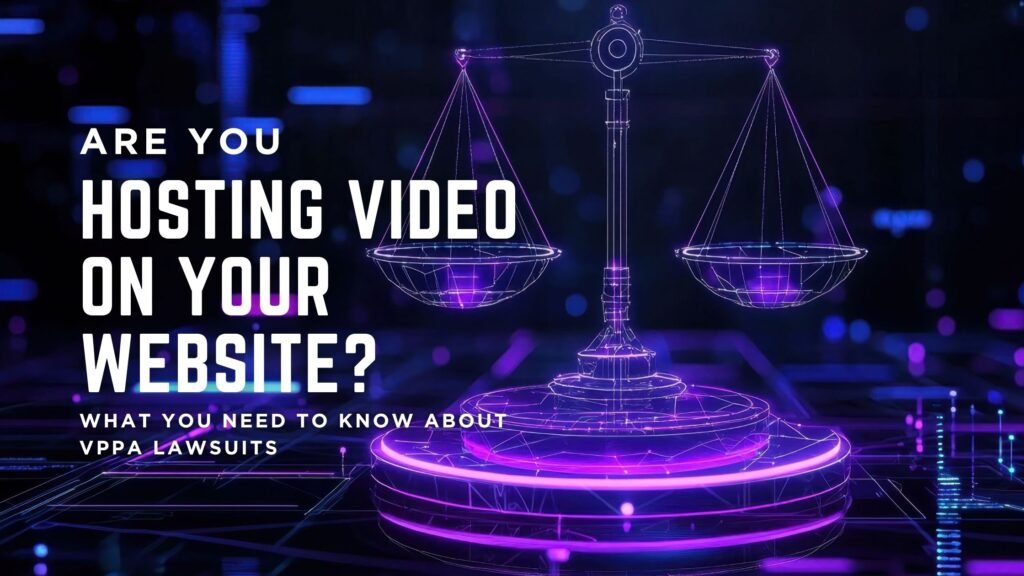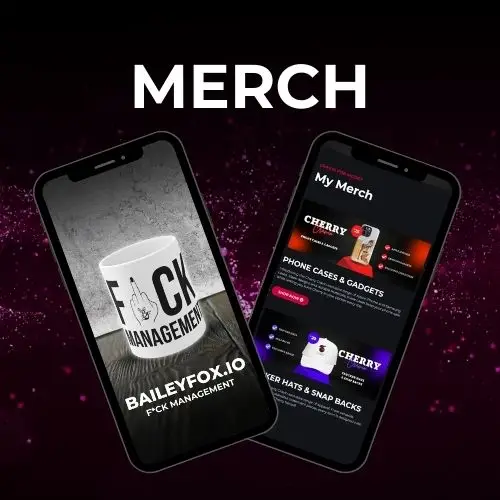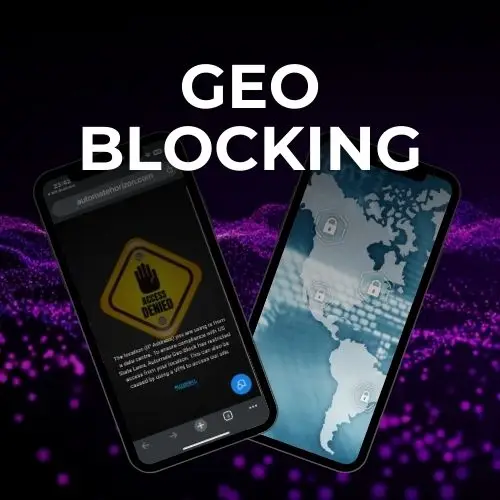If your website features videos, even short trailers or teasers, and uses tracking tools like Google Analytics or Meta Pixel, it’s important to be aware of a U.S. law called the Video Privacy Protection Act (VPPA).
In recent months, several adult platforms have been named in lawsuits alleging violations of this law. While this doesn’t mean every website is automatically at risk, it’s worth understanding how the law is being interpreted—and what that could mean for your site.
What Is the VPPA, and Why Is It Suddenly Relevant?
Originally passed in the 1980s to protect the privacy of video rental customers, the VPPA has recently been used in legal actions involving modern websites. Specifically, the law is being cited in lawsuits against sites that:
- Allow visitors to watch video content (even previews or promotional clips), and
- Use third-party tracking technologies that might collect or transmit personally identifiable information (PII), such as IP addresses or device IDs.
The legal argument is that combining viewing activity with any form of user-identifiable data, without explicit, prior consent, could potentially violate the VPPA.
Why Are Adult Sites Being Targeted?
Platforms like Pornhub, Kink, Bellesa, and Redgifs have been named in lawsuits that claim they shared protected viewing data through third-party analytics and advertising tools.
While these are high-traffic sites, the cases have sparked wider concern because they focus on how tracking tools interact with video content, not just on the size or popularity of a platform.
Recent reporting from AVN, XBIZ and statements from the Free Speech Coalition indicate that these lawsuits are part of a broader trend in data privacy enforcement, particularly within the adult industry.
It’s important to note that the outcomes of these lawsuits are still unfolding. Courts differ in how they interpret key terms like “consumer” and “personally identifiable information,” and how they apply to web-based video.
Are OnlyFans Tracking Links (Like /c2) a VPPA Concern?
Many agencies use customized OnlyFans links such as https://onlyfans.com/username/c2 to track which campaigns or sources are generating clicks. These links feed data into the creator or agency’s OnlyFans dashboard to measure performance.
✅ On their own, these links are not considered VPPA violations because:
- They don’t involve any video tracking on your website
- The link tracking happens after the user leaves your domain
- No video view data is shared directly through the link itself
⚠️ However, if these links are used on pages that:
- Also feature embedded videos, and
- Run analytics or ad tracking scripts at the same time
…then there’s a higher risk. If a page is collecting viewing behavior and identifiers (like IP address or device ID) while also pushing outbound clicks, this combination could be seen as disclosing “personally identifiable video viewing data” under the VPPA, especially without prior user consent.
Bottom line: Custom tracking links to OnlyFans are fine by themselves. The legal risk arises if they are used alongside video tracking tools without proper user consent.
What Could This Mean for Smaller Creators?
You don’t need to be a major platform to fall under scrutiny. If your website includes video content, especially if it tracks or analyzes user behavior, you may want to evaluate your setup. Even embedded videos, if paired with tracking scripts (such as Google Analytics or Meta Pixel), could potentially raise concerns under the current legal lens.
That said, this doesn’t mean you’re in violation, only that it’s wise to be proactive and informed.
How Can Websites Reduce Their Legal Risk?
While there’s no universal, guaranteed checklist that ensures full VPPA compliance in all cases, many data privacy professionals recommend the following general best practices:
- Request explicit consent before tracking any video-related user behavior.
- Provide a clear option to decline tracking, and respect that choice.
- Log and retain consent records, including timestamps and what was agreed to.
- Offer ongoing access to withdraw or update consent preferences.
- Renew consent at regular intervals (e.g., every 24 months).
How Automate Horizon Is Supporting Our Clients
At Automate Horizon, we’re keeping a close eye on these developments and helping our clients respond accordingly. As part of our ongoing support:
- We’re introducing consent banners designed to address VPPA concerns
- Sites we manage will block video-related tracking until consent is given
- We’re updating privacy policies and terms of use to reflect current expectations
- Visitors can easily manage or withdraw their consent at any time
- Consent logs are automatically created and stored securely
While we can’t offer legal guarantees, our approach is shaped by the latest industry insights and evolving compliance strategies.
What Will Your Fans Actually See?
Visitors to your website will see a clear, friendly prompt asking if it’s okay to track what videos they view.
- If they agree, analytics and tracking tools function normally
- If they decline, those tools remain disabled for their session
This helps you build transparency and trust while also addressing current legal trends.
Stay Informed, Not Alarmed
It’s understandable to feel concerned when you hear about lawsuits. But the goal isn’t panic, it’s preparation.
The VPPA is complex, and how it’s applied to adult websites is still evolving. No one can predict exactly how future courts will rule, but by staying informed and taking reasonable precautions, creators and small site owners can reduce their exposure to risk.
If you’re unsure whether your site setup raises VPPA concerns, or if you’d like help reviewing it, we’re here. Automate Horizon is committed to helping adult creators run safe, compliant, and successful digital businesses.







